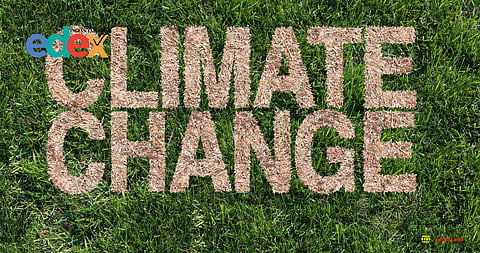Climate litigation on the rise in India amid growing environmental concerns: UN Report
A recent United Nations report reveals that climate litigation is on the rise in India, marking it as one of the key countries in the Global South where legal action is being increasingly used to address environmental challenges. According to the report, India recorded 14 climate-related cases in 2025, up from 11 in 2023.
These cases focus on critical issues such as air pollution, deforestation, renewable energy obligations, climate adaptation, and the constitutional right to a clean and healthy environment. Indian courts, particularly the Supreme Court and the National Green Tribunal, have played a significant role by integrating climate considerations into their rulings. This reinforces the State’s duty to protect citizens from the impacts of climate change.
These judicial efforts align with India's national climate objectives, including achieving net-zero emissions by 2070, expanding renewable energy capacity, and improving climate adaptation and disaster preparedness.
“India’s leadership in environmental jurisprudence is mature. We should avoid celebrating more climate litigation to achieve our national climate goals. Reducing climate change-related challenges is everyone’s responsibility,” said Dr Balakrishna Pisupati, Head of the United Nations Environment Programme (UNEP) India Office.
In Asia, Indonesia topped the list with 15 cases, followed by India (14), Pakistan (6), and China (5). Globally, the United States leads with 1,986 climate-related cases, followed by Australia, Brazil, the United Kingdom, Northern Ireland, and Germany.
The UNEP report, titled Global Climate Litigation Report 2025: Climate Change in the Courtroom – Trends, Impacts and Emerging Lessons, was prepared in collaboration with the Sabin Center for Climate Change Law at Columbia Law School. It finds that climate litigation is now being pursued in more countries than ever before, with courts becoming vital venues for accountability and justice.
The report highlights that over 3,099 climate-related cases have been filed across 55 jurisdictions and 24 international or regional courts, tribunals, and quasi-judicial bodies. This marks a sharp increase from 884 cases in 2017, 1,550 in 2020, and 2,180 in 2022.
According to the report, courts are increasingly enforcing environmental laws and shaping the interpretation of the Paris Agreement through the lens of human rights, equity, and intergenerational justice. It also notes that over 60 countries with no prior climate litigation have participated in global advisory proceedings at the International Court of Justice (ICJ) and the International Tribunal for the Law of the Sea (ITLOS), showing unprecedented legal mobilisation on climate issues.
“Climate litigation has evolved into a powerful global tool for advancing climate action and accountability,” said Inger Andersen, Executive Director of UNEP.
Litigation is now seen not just as a legal recourse, but as a transformative mechanism to hold governments accountable, clarify obligations, drive systemic change, and promote equitable climate governance.
[Article by Jitendra Choubey of The New Indian Express]


